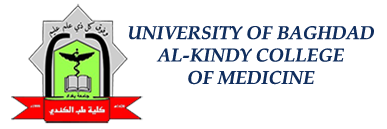The Continuing Education Unit at Al-Kindy College of Medicine, University of Baghdad, in collaboration with the Women’s Affairs Unit, successfully organized a groundbreaking workshop titled “The Role of Artificial Intelligence and Machine Learning in Medical Data.” This event marked a significant step toward integrating advanced technologies into the medical field, highlighting the transformative potential of artificial intelligence (AI) and machine learning (ML) in revolutionizing healthcare.
The workshop was led by Ms. Noor Faris AbdulKareem, Head of the IT Division at the College, and attended by distinguished guests, including Professor Dr. Mohammed Shehab Al-Aidani, Dean of the College, along with his deputies, faculty members, and administrative staff. The session was chaired by Assistant Professor Dr. Zaid Ihsan, who facilitated an engaging and insightful discussion on the future of AI in medicine.
The workshop emphasized how AI and ML are transforming the accuracy and speed of disease diagnosis. By leveraging advanced algorithms, these technologies can analyze complex medical data, such as imaging, genetic information, and patient records, to identify patterns and predict diseases at earlier stages. This capability not only improves diagnostic accuracy but also enables personalized treatment plans tailored to individual patient needs.
AI-powered tools are playing a pivotal role in improving the quality of patient care. From predictive analytics that anticipate patient deterioration to virtual health assistants that provide real-time support, AI is enhancing patient outcomes and reducing the burden on healthcare providers. The workshop highlighted case studies where AI-driven solutions have significantly improved patient monitoring, treatment adherence, and overall healthcare delivery.
One of the most promising applications of AI in medicine is its contribution to precision medicine. By analyzing vast datasets, AI can identify genetic, environmental, and lifestyle factors that influence disease progression. This enables healthcare providers to develop targeted therapies and interventions, ensuring more effective and efficient treatment strategies.
The session delved into the modern applications of AI in analyzing large-scale medical data. AI and ML algorithms can process and interpret massive datasets, uncovering insights that would be impossible for humans to detect manually. These technologies assist physicians in making data-driven, accurate, and timely clinical decisions, ultimately enhancing the quality and efficiency of healthcare services.
While the potential of AI in medicine is immense, the workshop also addressed the challenges associated with its implementation. Key concerns include:
Ethical Implications: Ensuring that AI systems are transparent, unbiased, and aligned with ethical standards is critical. The workshop emphasized the need for robust ethical frameworks to govern the use of AI in healthcare.
Data Security and Privacy: Protecting sensitive patient data is paramount. The discussion highlighted the importance of implementing stringent data security measures to prevent breaches and misuse.
Responsible AI Development: The session stressed the need for responsible AI methodologies that prioritize patient safety, fairness, and accountability.
The workshop concluded with actionable recommendations to harness the full potential of AI and ML in healthcare:















